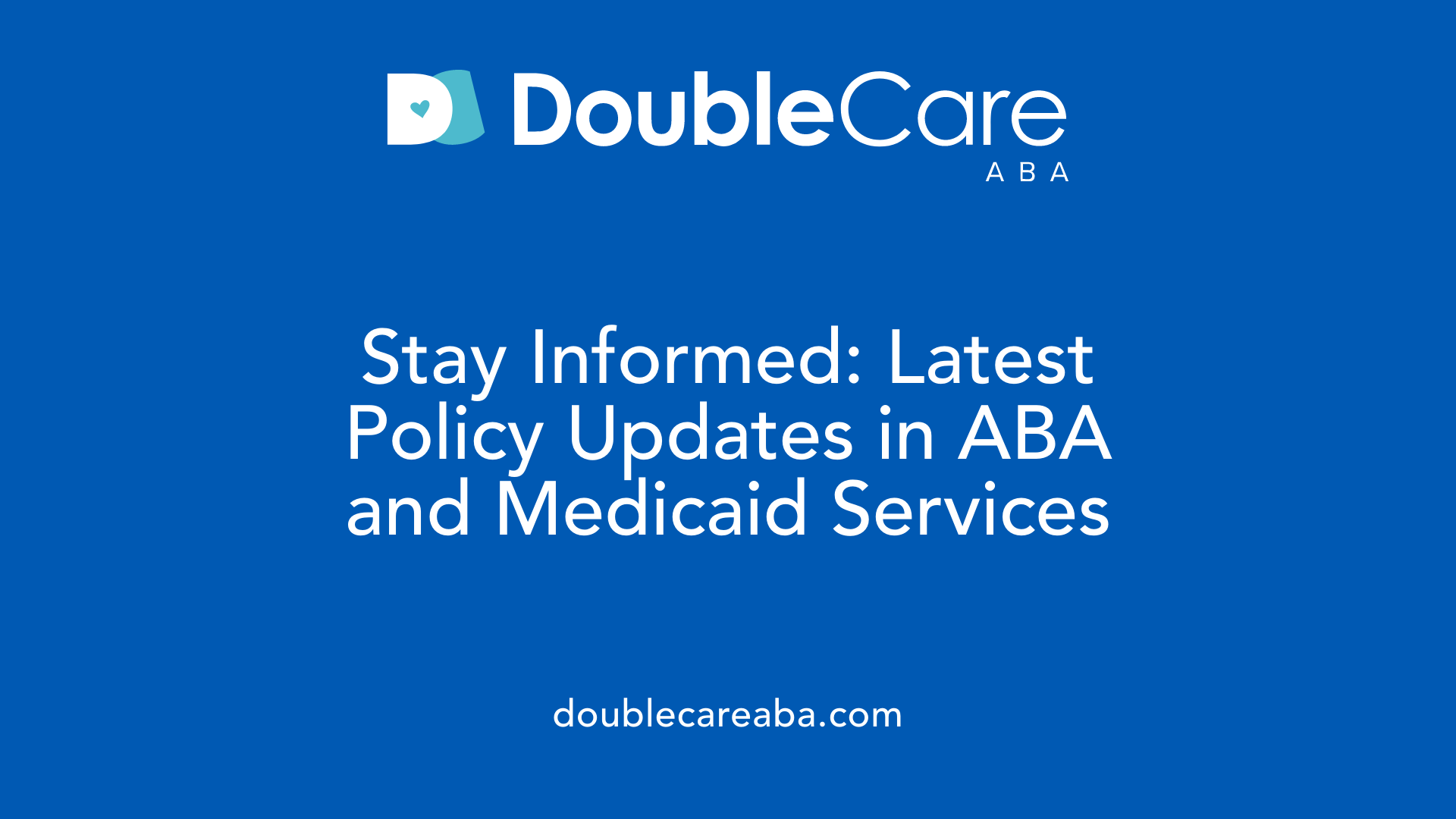What Is Total Care ABA?
Unlocking the Power of Personalized Autism Support

Understanding Total Care ABA and Its Role in Autism Treatment
Total Care ABA is a leading provider of Applied Behavior Analysis (ABA) therapy dedicated to supporting children and youth diagnosed with autism spectrum disorder (ASD). With a comprehensive approach rooted in evidence-based practices, Total Care ABA offers tailored interventions to enhance communication, social skills, daily living, and reduce challenging behaviors. This article explores what Total Care ABA is, the services it provides, its methodologies, target populations, organizational model, recent updates in ABA policies, and common questions about ABA therapy benefits.
What Is Total Care ABA and the Services It Provides
Overview of Total Care ABA
Total Care ABA is a dedicated therapy provider based in Jasper, Indiana, specializing in Applied Behavior Analysis (ABA) services for children diagnosed with autism spectrum disorder (ASD). The organization emphasizes individualized treatment plans tailored to each child's developmental profile. With a comprehensive approach, Total Care ABA aims to support children in building crucial skills for daily life, communication, social interaction, and adaptive functioning.
Types of services offered: center-based, at-home, and in-school ABA therapy
Total Care ABA offers a variety of service settings to meet the diverse needs of children and their families. These include:
- Center-based ABA therapy: Conducted at the organization’s Jasper location or other centers, providing a structured environment for intensive skill development.
- At-home ABA therapy: Delivered directly in the child's home, allowing for personalized interventions within their natural environment.
- In-school ABA therapy: Implemented within educational settings to support children in learning and socializing with peers, facilitating generalization of skills.
Each service type is designed to be flexible, ensuring every child receives effective, accessible support suited to their daily routines and environments.
Focus on personalized programs to improve communication, social, and adaptive skills
At the heart of Total Care ABA’s approach is the development of personalized programs. These programs are crafted based on comprehensive assessments, including behavioral analysis and caregiver input. The goal is to enhance critical areas such as:
- Communication skills: Helping children express their needs and understand others.
- Social skills: Encouraging positive interactions with peers and family members.
- Adaptive skills: Teaching daily living tasks such as dressing, grooming, and safety.
- Behavioral improvements: Implementing strategies to reduce harmful or disruptive behaviors.
The therapy process involves trained professionals, including Registered Behavior Technicians (RBTs) supervised by Board Certified Behavior Analysts (BCBAs). This supervision ensures treatment strategies are evidence-based and tailored to promote meaningful growth.
Coverage for children and youth through age 21, across diverse communities
Total Care ABA serves a broad age range, from 2 up to 21 years old, embracing all genders, races, and those with physical or cognitive disabilities. The organization is committed to reaching diverse communities and provides culturally sensitive services. Their goal is to ensure all eligible children and youth have access to high-quality ABA therapy regardless of background.
In Jasper, Indiana, the center is located at 695 Third Ave, with easy contact options via phone at (812) 670-9442 or email at jack@totalcareaba.com. What sets Total Care ABA apart is their acceptance of most major insurance plans, including Medicaid, and their no-waitlist policy. This aligns with their mission to make effective ABA therapy accessible and convenient.
Additional Service Details and Recent Updates
Recent regulatory updates, effective from February 7, 2025, have refined the definitions of Medicaid-covered behavioral health services, including ABA. It is essential for providers to adhere to these guidelines to ensure proper care delivery. Updated information can be accessed via the Nebraska Medicaid Provider Bulletin 25-02 and the Nebraska Department of Health and Human Services website.
Total Care ABA’s commitment to evidence-based practices, personalized treatment, and inclusive service delivery makes it a trusted choice for families seeking support for children with autism.
| Service Type | Description | Location | Age Range | Additional Details |
|---|---|---|---|---|
| Center-based ABA | Intensive therapy in dedicated centers | Jasper, IN | 2-21 | Supervised by BCBAs, tailored programs, skill development focus |
| At-home ABA | Therapy at child’s residence | Various locations | 2-21 | Flexible scheduling, family involvement, reinforcement in natural environment |
| In-school ABA | Support within educational settings | Schools in NM or other locations | 2-21 | Promotes generalization, supports classroom behavior & social skills |
Total Care ABA strives to make impactful, personalized ABA therapy accessible to children and families in various settings, ensuring developmental progress across their lifespan.
Approach and Methods Used in Total Care ABA

How does Total Care ABA's approach and methods differ from other ABA providers?
Total Care ABA sets itself apart through its commitment to personalized treatment strategies tailored to each child's unique needs. Unlike some providers that may offer a standardized protocol, Total Care ABA focuses on comprehensive behavioral assessments to develop highly individualized plans.
Their approach is rooted in science, utilizing proven techniques such as discrete trial training (DTT), natural environment teaching (NET), and data-driven decision-making to guide interventions. DTT is a structured method where skills are broken down into small, teachable steps, making it easier for children to learn new behaviors. NET integrates learning into everyday activities, promoting functional skills in natural settings, which helps children generalize their skills beyond therapy sessions.
The organization employs a team of trained professionals, including Registered Behavior Technicians (RBTs) and Board Certified Behavior Analysts (BCBAs). RBTs execute the daily interventions under the supervision of BCBAs, who oversee treatment plans and ensure that strategies are both effective and based on current research.
Part of Total Care ABA's success lies in their close collaboration with families. They work actively with parents and caregivers to ensure that skills are practiced consistently across different environments. This teamwork is vital in helping children transfer learned behaviors from therapy to home, school, and community settings.
Use of evidence-based techniques such as discrete trial training, natural environment teaching, and data-based decision-making
Evidence-based practices form the foundation of all services provided. Discrete trial training is especially prominent, offering structured, repetitive learning trials that promote acquisition of specific skills. Natural environment teaching allows children to learn through play and daily routines, making mastery more functional.
Data collection is continuous and rigorous. Therapists record every session meticulously to track progress objectively. This data informs ongoing adjustments to treatment plans, ensuring interventions remain effective and aligned with each child's development.
The role of trained professionals including RBTs and BCBAs
Total Care ABA’s team of professionals is central to delivering high-quality care. BCBAs are responsible for designing and supervising treatment protocols, relying on their expertise in behavior analysis. RBTs implement these plans daily, providing consistent, engaging, and scientifically sound therapy.
This tiered structure ensures that interventions are both expertly crafted and faithfully executed, leading to better outcomes for children.
Collaboration with families to ensure skill generalization and consistency
Family involvement is a cornerstone of Total Care ABA's approach. Regular communication and training equip parents and caregivers to reinforce skills outside of therapy sessions. This partnership enhances the child's ability to generalize learned behaviors across various settings, fostering long-term growth.
By integrating scientific rigor with personalized care and family collaboration, Total Care ABA aims to deliver effective, adaptable, and meaningful support for children with autism.
| Aspect | Description | Additional Details |
|---|---|---|
| Treatment Planning | Individualized based on behavioral assessments | Tailored goals for communication, social, and adaptive skills |
| Techniques | DTT, NET, data-based decision-making | Evidence-supported methods to promote skill acquisition |
| Professionals | RBTs supervised by BCBAs | Certified, trained in the latest behavior analysis practices |
| Family Collaboration | Ongoing involvement and training | Ensures skill consistency and generalization |
| Service Settings | Center-based, at-home, in-school | Flexible to meet different needs |
Total Care ABA’s approach combines scientific evidence, personalized planning, and family partnership to provide autism therapy that is both effective and respectful of each child's individuality.
Target Population and Eligibility for Total Care ABA
Who is the target population for Total Care ABA services?
Total Care ABA services are designed specifically for children and youth diagnosed with autism spectrum disorder (ASD). The diagnosis must be confirmed by a qualified healthcare professional, such as a physician, psychologist, or advanced practice nurse, using standardized criteria like the DSM-5 Text Revision (DSM-5 TR) or relevant state-defined guidelines.
The primary focus is on individuals who display significant impairments in essential developmental areas. These areas include communication skills, social interactions, adaptive behaviors necessary for daily living, or behaviors that might pose a risk of harm—like self-injury or aggression.
Typically, the services target children from birth up to approximately 21 years of age, with particular attention to early development and the critical years for intervention. However, there is also flexibility to serve older individuals if they require specialized behavioral support.
Eligibility for ABA therapy through Total Care ABA involves a thorough assessment process. This process includes standardized evaluations to measure functional impairments and behavioral challenges. These assessments help determine the child's specific needs and the appropriateness of intervention, ensuring that services are individualized and impactful.
The goal of these programs is to support children whose behaviors and skills substantially affect their ability to engage in developmentally appropriate activities. Children who demonstrate a clinical need for tailored behavioral intervention—such as struggling with communication, social skills, or adaptive behaviors—are candidates for these services.
Overall, children and young adults who meet these diagnosis and impairment criteria are eligible, with services emphasizing early, personalized intervention to enhance their quality of life and functional independence.
Organizational Model and Service Delivery

What are the organizational or service models used by Total Care ABA?
Total Care ABA employs a comprehensive, team-based approach to delivering Applied Behavior Analysis (ABA) therapy. This model emphasizes collaboration among various professionals and family members to create tailored treatment plans that effectively meet each child's unique needs.
At the core of their service delivery are trained professionals, including Board Certified Behavior Analysts (BCBAs), Registered Behavior Technicians (RBTs), and other licensed therapists. BCBAs oversee treatment programs, ensuring they adhere to the latest evidence-based practices, while RBTs and therapists implement daily interventions and monitor progress.
Family involvement is a vital component. Families are actively engaged in the therapy process, receiving support and training to carry on progress at home and within community settings.
Services are offered across multiple environments to maximize impact and generalization of skills. These include:
- In-home therapy: Conducted within the child's residence, fostering skills in a familiar context.
- Community-based therapy: Includes interactions in natural settings like parks, grocery stores, or schools.
- Clinic or center-based sessions: Held at the Total Care ABA location or partner facilities.
This flexible, multi-setting approach ensures children benefit from consistent, comprehensive care aligning with their daily routines and environments.
Their practice strictly follows established ABA guidelines and integrates other evidence-based interventions such as the Developmental, Individual Differences, Relationship-Based (DIR) Floortime approach and supplementary therapies, all delivered by qualified professionals. These methods focus on promoting communication, social abilities, daily living skills, and behavior management.
Funding and insurance coverage are also integral to service delivery. Total Care ABA accepts most major insurance plans, including Medicaid, to make therapy accessible with no waitlist. This ensures that children from diverse backgrounds and communities can receive timely, effective care.
Coordination with healthcare and government agencies, particularly Medicaid, underpins the organizational model. It guarantees that services comply with updated Medicaid behavioral health definitions and that families navigate eligibility and coverage efficiently.
Overall, Total Care ABA's delivery model prioritizes individualized, person-centered care supported by a dedicated team, flexible service settings, and comprehensive coordination with health systems. This approach not only enhances therapeutic outcomes but also strengthens family and community participation in the child's developmental journey.
Updates and Definitions Related to ABA Services and Medicaid

Are there recent updates or specific definitions related to ABA services within programs like Medicaid?
Yes, recent policy updates have introduced new requirements and clarifications pertaining to Applied Behavior Analysis (ABA) services under Medicaid programs, especially in states like Nebraska. These updates took effect on February 7, 2025, and have significant implications for providers and beneficiaries.
One of the notable changes is the implementation of revised procedures for obtaining prior authorization. Providers are now required to include detailed documentation of units for each Current Procedural Technology (CPT) code used in ABA therapy. This change aims to improve oversight and ensure appropriate billing, but it also increases administrative demands on providers.
Medicaid continues to cover ABA services under the Early and Periodic Screening, Diagnostic, and Treatment (EPSDT) benefit, which emphasizes the use of evidence-based practices. To qualify, children typically need to be under age 21, diagnosed with autism spectrum disorder (ASD), and show medical necessity for the therapy.
However, recent policy changes are also introducing caps on therapy hours in some areas and reducing reimbursement rates, which could limit access to services for some children. Additionally, there are federal and state-level proposals that aim to cut Medicaid spending, raising concerns about longer waitlists and decreased provider participation.
Providers and families are advised to stay informed by consulting official resources such as the Nebraska Medicaid Provider Bulletin 25-02 and the Nebraska Department of Health and Human Services website. Maintaining compliance with the new documentation and authorization procedures is essential to ensure continued coverage.
Overall, these updates reflect a broader shift toward more strict oversight and cost containment within Medicaid-funded ABA services. While they aim to promote efficient use of resources, they also highlight the importance of advocacy and proactive engagement with policy changes to protect access for children needing these vital therapies.
Addressing Common Questions About ABA Therapy and Its Benefits

What are common questions about ABA therapy and its benefits?
Many families and caregivers seeking support for children with autism ask a variety of questions about ABA therapy to better understand its purpose and expected outcomes.
One of the most common inquiries is what ABA therapy actually involves. Applied Behavior Analysis is a scientific approach that uses structured techniques to help children develop essential skills. It is personalized to each child's specific needs, targeting improvements in communication, social interaction, daily living skills, and reducing problematic behaviors.
People often want evidence of ABA’s effectiveness. Research consistently shows that ABA can lead to meaningful improvements in a child's ability to communicate and interact socially. It also promotes greater independence in daily activities. This positive impact helps children participate more fully in their environments.
Parents and caregivers also ask about specific methods used during the therapy. ABA employs techniques such as positive reinforcement—rewarding desired behaviors to encourage their recurrence—and diligent data collection to track progress. Therapists break down complex skills into small, manageable steps, making learning more achievable for children.
Another question revolves around family involvement. Families are encouraged to participate actively in the therapy process. Many centers, including Total Care ABA, offer family support and training to help caregivers reinforce skills at home and create a consistent environment for the child's development.
In addition, questions about the age range of children served are common. ABA therapy is effective for children and youth from ages 2 to 21, regardless of gender, race, or other disabilities, including physical and cognitive challenges. This flexibility allows for continuous support across different developmental stages.
Furthermore, prospective clients often inquire about access and availability. Reputable providers usually accept most major insurance plans, including Medicaid, making services more accessible. Centers are typically equipped to provide therapy without long waitlists, ensuring timely intervention.
In summary, common questions focus on understanding what ABA therapy entails, how it benefits children, what techniques are used, how families can participate, and how accessible services are. Each of these aspects is vital to making informed decisions and maximizing the potential benefits of ABA therapy for children with autism.
Paving the Way for Developmental Success
Total Care ABA exemplifies a dedicated, evidence-based, and patient-centered approach to autism treatment. By offering comprehensive, personalized ABA therapies across multiple settings and maintaining a commitment to ongoing professional development and family collaboration, they aim to foster meaningful developmental gains and better quality of life for children and youth with ASD. Staying updated with policy changes and continuously refining their methods ensures that their services remain effective, accessible, and aligned with the latest standards in behavioral health.
References
- Total Care ABA Therapy - Jasper
- Total Care ABA
- Applied Behavior Analysis (ABA) Service Definitions
- What is the Difference Between ABA Care and Behavioral ...
- Is ABA Considered Psychology Today? A Clear Breakdown
- Applied Behavior Analysis (ABA)
- The 7 Dimensions & Core Principles of ABA
- Principles of Applied Behavior Analysis
- What Is Applied Behavior Analysis - Exploring ABA ...
- ABA Therapy Examples, Definition & Techniques
















